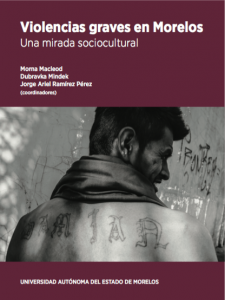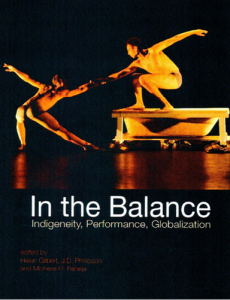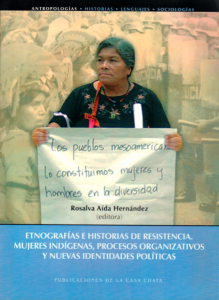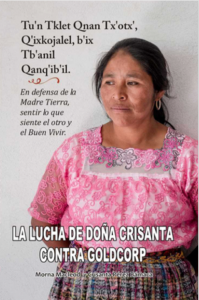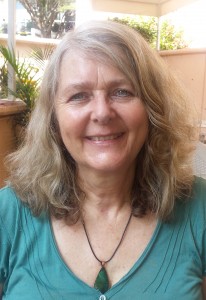
Morna Macleod has an M.A. and PhD. in Latin American Studies from the National Autonomous University of Mexico (UNAM). She has been a researcher and lecturer at the State Autonomous University of Morelos (UAEM) since 2012. She is a member of Mexico’s National Researchers’ System (SNI).
Before becoming involved full-time in academia, she worked for many years in human rights, research, international aid agencies, and as an independent consultant.
In these different areas, she has fostered collaborative and horizontal research, teaching and evaluation methods, working iteratively between social practices and academic theorizing, combining Freirean popular education principles to her academic research. Working from an intersectional framework, she studies issues of multifaceted violence and resistance, as well as indigenous epistemologies, particularly with Mayan women from Guatemala. Currently, she is teaching and researching multiple violence in Morelos, Mexico, and is exploring issues of human rights, memory, and justice in Chile and Guatemala.
Academic Article: COMUNIDADES EMOCIONALES: RESISTIENDO A LAS VIOLENCIAS EN AMÉRICA LATINA
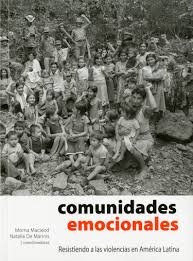 This book focuses on emotional engagement in academic research with victims of violence and testimonial documentation in Latin America. It examines the recent history of resistance to violence and political repression in Latin America, highlighting the role of emotions in the political sphere. The authors analyze the role of researchers committed to social change and question the mandate of distance and neutrality in academic research in contexts of extreme violence. They use case studies of social resistance to political violence in Mexico, Guatemala, El Salvador, Nicaragua, Colombia and Chile.
This book focuses on emotional engagement in academic research with victims of violence and testimonial documentation in Latin America. It examines the recent history of resistance to violence and political repression in Latin America, highlighting the role of emotions in the political sphere. The authors analyze the role of researchers committed to social change and question the mandate of distance and neutrality in academic research in contexts of extreme violence. They use case studies of social resistance to political violence in Mexico, Guatemala, El Salvador, Nicaragua, Colombia and Chile.
Academic Article: TESTIMONIOS MAYAS DURANTE EL CONFLICTO ARMADO INTERNO EN GUATEMALA
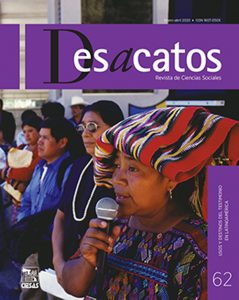 This article analyzes the testimonies of Mayan activists presented to the Permanent Peoples’ Tribunal during the armed conflict in Guatemala and backed by other sources, in particular the Costa Rican journal Polémica. Little has been written about testimonies given during wars: what are the characteristics, potentials, and constraints of denouncing atrocities in real-time? After analyzing the testimonies and recent personal communication with the testifiers, I argue that giving testimony during the war enhances agency, foments a sense of urgency to save lives, and contributes political power to the literature on memory. I suggest that the voices of Mayans enrich the Tribunal’s testimony-denunciations, as they include other grievances, but what is taken up and what is omitted weaves further silenced strands of violence.
This article analyzes the testimonies of Mayan activists presented to the Permanent Peoples’ Tribunal during the armed conflict in Guatemala and backed by other sources, in particular the Costa Rican journal Polémica. Little has been written about testimonies given during wars: what are the characteristics, potentials, and constraints of denouncing atrocities in real-time? After analyzing the testimonies and recent personal communication with the testifiers, I argue that giving testimony during the war enhances agency, foments a sense of urgency to save lives, and contributes political power to the literature on memory. I suggest that the voices of Mayans enrich the Tribunal’s testimony-denunciations, as they include other grievances, but what is taken up and what is omitted weaves further silenced strands of violence.
Academic Article: CRITICAL VIOLENCE IN MORELOS, MEXICO
This volume is the result of an initiative I undertook with fifteen postgraduate Social Science students and two colleagues from the Autonomous University of the State of Morelos, given the alarming levels of multiple violence in the state of Morelos, Mexico. After various seminars on different forms of violence, understood as a continuum, the book brings together individual and co-authored chapters that explore different facets of devastating multiple violence currently taking place in Morelos. There are chapters on homicide, femicide, kidnapping, forced displacement and disappearance, as well as repression of human rights activists and an emphasis on youth excluded from the system. Based on direct experience and direct contact with violence, the volume seeks to understand the logics and specific characteristics of multiple violence in Morelos, and how these logics interconnect to form a continuum of violence that are present in private spaces and the public sphere, and involve a variety of actors and institutions –perpetrators and victims- including organized crime, state institutions, members of society, their families and communities.
Academic Article: Ethical Tribunals. Maya Incursions into Symbolic Social Justice
This essay explores Maya use of ethical tribunals to highlight grievances and put forward claims. In the face of military and government impunity in Guatemala, ethical tribunals create a space to denounce human rights abuses and enact social justice. While Maya women and men have participated in a range of ethical tribunals in Guatemala over the last decade, my particular focus is on the 2012 Health Tribunal, which scrutinized the impacts of a Canadian mining company on local inhabitants and ecosystems. The ensuing discussion reflects on Maya use of global forms of performance to elicit recognition of harm and seek symbolic redress.
Academic Article: VOCES DIVERSAS, OPRESIONES Y RESISTENCIAS MULTIPLES: LAS LUCHAS DE MUJERES MAYAS EN GUATEMALA
In this chapter, and in the context of the Mayan movement at the turn of the century, I explore the factors that have allowed a growing number of Mayan women to remove the veil of silence enshrouding them, and to strengthen their agency and empowerment. I place special emphasis on the reflections and written texts of a diversity of Mayan women, the multiple and interwoven logics of oppression Mayan women are trying to liberate themselves from, and I highlight differing nuances and priorities between their visions. I see this diversity precisely as a source of dynamism and richness in Mayan women’s social practices and political-cultural creativity.
Journalistic Article: LA LUCHA DE DOÑA CRISANTA CONTRA GOLDCORP
This is the life history of Doña Crisanta Pérez, a Maya-Mam leader in San Miguel Ixtahuacán, and her struggle against Guatemala’s first open-pit goldmine. Doña Crisanta’s resistance has met with hostility and reprisals from the Canadian corporation Goldcorp, racism, family rifts and community conflict. Despite all, Doña Crisanta continues steadfastly in her struggle, denouncing environmental devastation caused by the mine, its impacts on health and the ripping apart of community social fabric.
